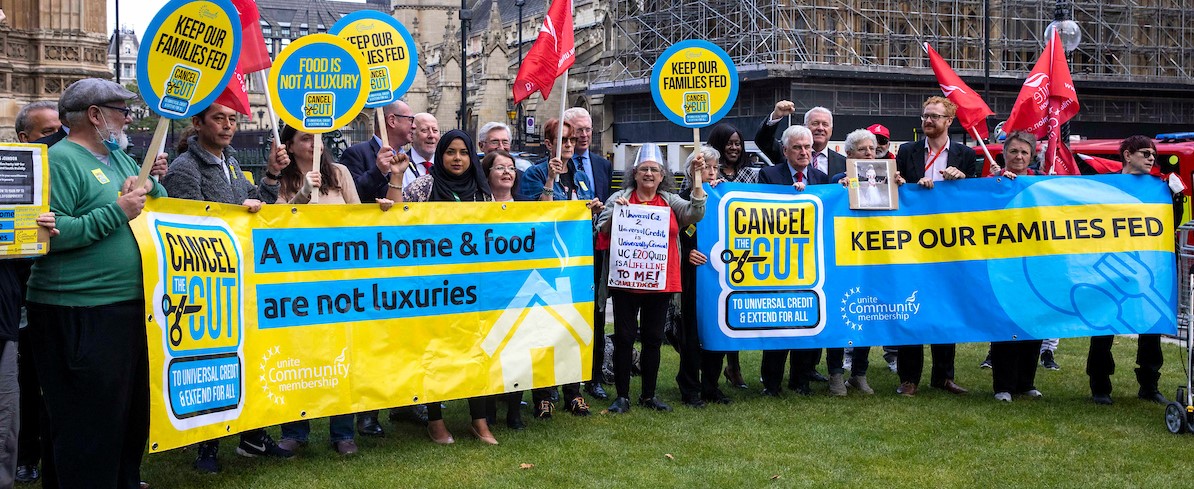Lend a hand
In part 2 of our week-long series for Disability History Month, UNITElive speaks to Unite vice-chair of the South East region Ian Lidbetter. Having a disability that isn’t immediately apparent, Ian explains the struggles he and others face in work.
Ian Lidbetter is a hard working 67-year-old man, who occasionally needs a little help.
As a lorry driver tying on loads has become difficult, after a shoulder injury sustained in a traffic accident in 2002. During surgery his nerves were sliced, leaving his shoulder with only 60 percent mobility.
At work Ian asks for a hand. Surely nobody would refuse him assistance, right?
Wrong.
“A lot of people help, but there’s a few that turn their back on you. Sometimes I have difficulty tying my load.
“The majority of people will give me a hand to do it. But some people say â€well you’re a driver and should be able to do it. If you can’t you shouldn’t be in the job.’
“They walk away from you even if you ask for help. I’ve experienced that,” said Ian, who is Unite vice-chair for the South East region.
Â
‘You have to live with that’
There’s always a few bad apples wherever you go, though. Mean spirited types who wouldn’t care if the entire world was on fire, as long as they were ok.
Those sort of occurrences must be rare, like going for a dip in the sea and getting stung by a jelly fish. We all know it happens but it doesn’t happen very often.
“When a disability isn’t immediately visible all you get is â€there’s nothing wrong with you, you’re a skiver, you’re a scrounger, a parasite. You have to live with that. I’ve had it from my own family. I’ve been told by my own brothers I’ve got nothing wrong with me,” Ian said.
“It makes me feel down and disgusted. People aren’t aware of the discrimination, humiliation and bullying that goes on when someone has a disability. But there’s others worse off than me, at least I’m still working, so I take it on the chin.”
What Ian says is backed up by a 2014 survey of more than a thousand disabled people by the disability charity Scope, regarding their experiences over a twelve month period.
Forty-nine percent of respondents said that someone who had talked to them didn’t believe they were disabled and 28 percent encountered people who refused to make adjustments for them.
Seventeen percent were called names and 21 percent found that people incorrectly assumed they didn’t work.
Media to blame
What leads to attitudes like those is a complex question, but Ian is certain that there are elements within Britain that need to take some responsibility: namely sections of the media.
“One of the worst things that’s happened to the disabled community are programmes like Benefit Street. When that came on everybody that was on a benefit, from disability benefit, to illness benefit to unemployment benefit, were labelled scroungers,” Ian said.
“One show discriminated against every person who’s on a benefit. That’s wrong. It makes me angry. Anybody can be made disabled. Something could happen in life tomorrow and you could end up with a disability.”
The pattern Ian sees is like a malign Russian Doll, attempting to replicate ever larger versions of itself: The Tories setting an agenda to attack the weakest, followed by the right-wing media presenting distorted narratives to reinforce the Tory view, resulting in a growing public callousness as more and more people absorb the message.
Ian said: “Instead of Osborne stigmatising the most vulnerable, he should be protecting them. But he’s taking care away from them, and he’s taking compassion away from our society. It’s comes from the top down.”
That’s why Unite’s role is so important, he says: “They defend the rights of disabled people and they fight to improve legislation for the rights of disabled people. Without unions we’d go back to the Victorian Age.”
Tomorrow (December 16), UNITElive speaks to Ceri Wright about another invisble disability — autism.
 Like
Like Follow
Follow


